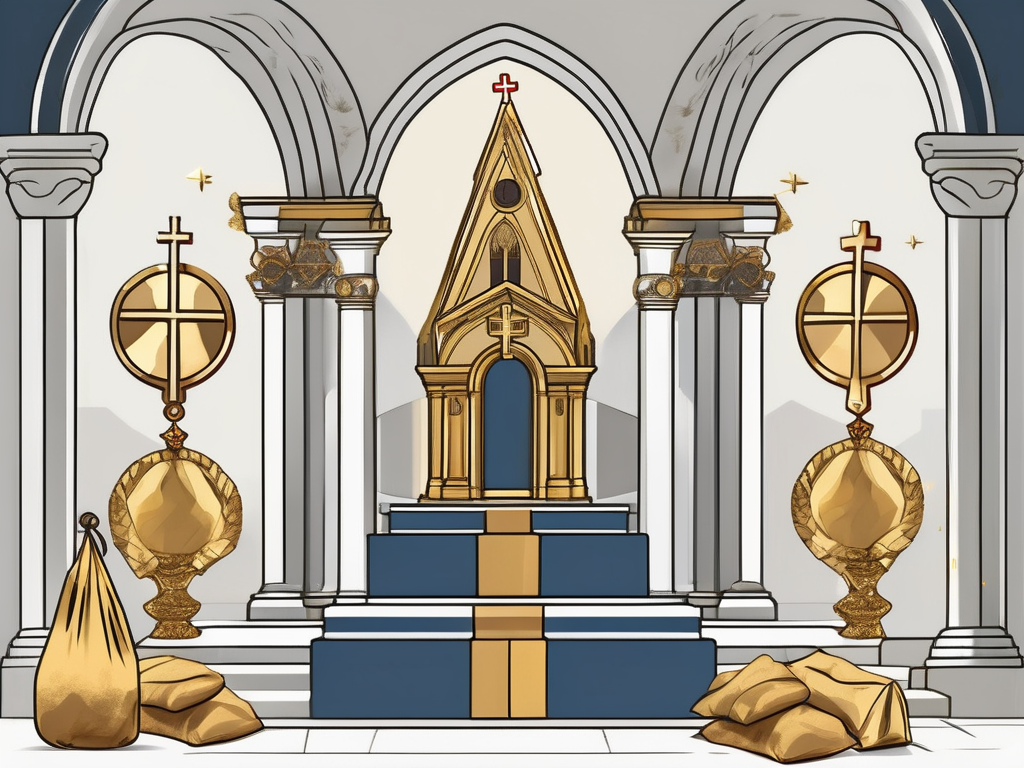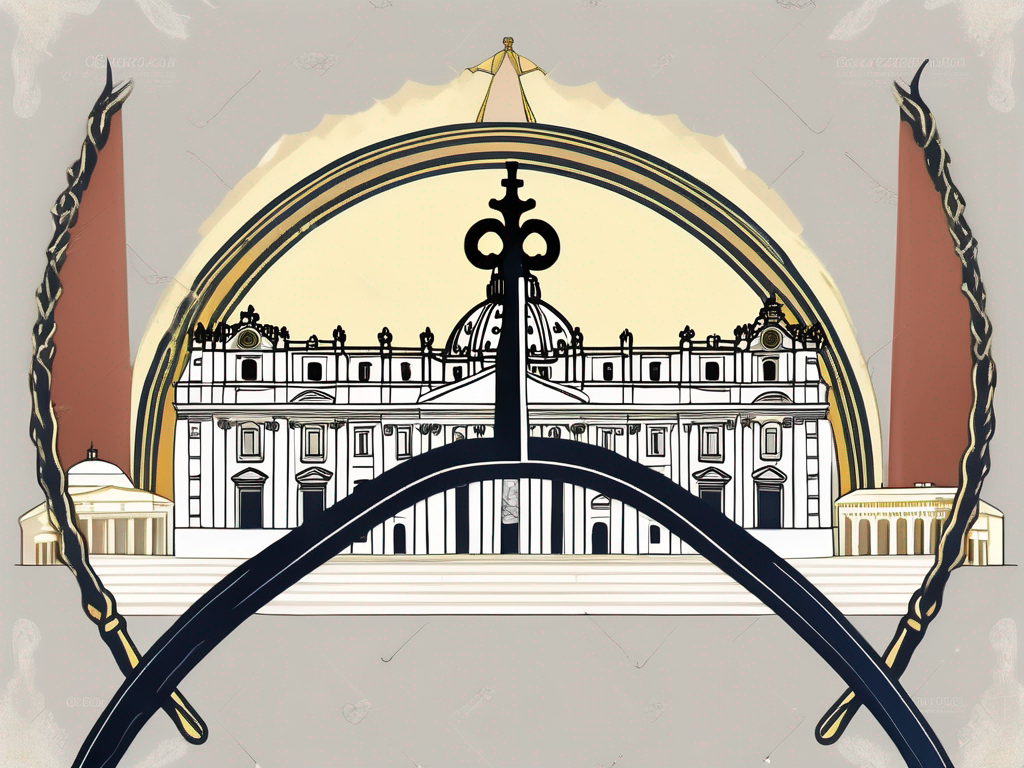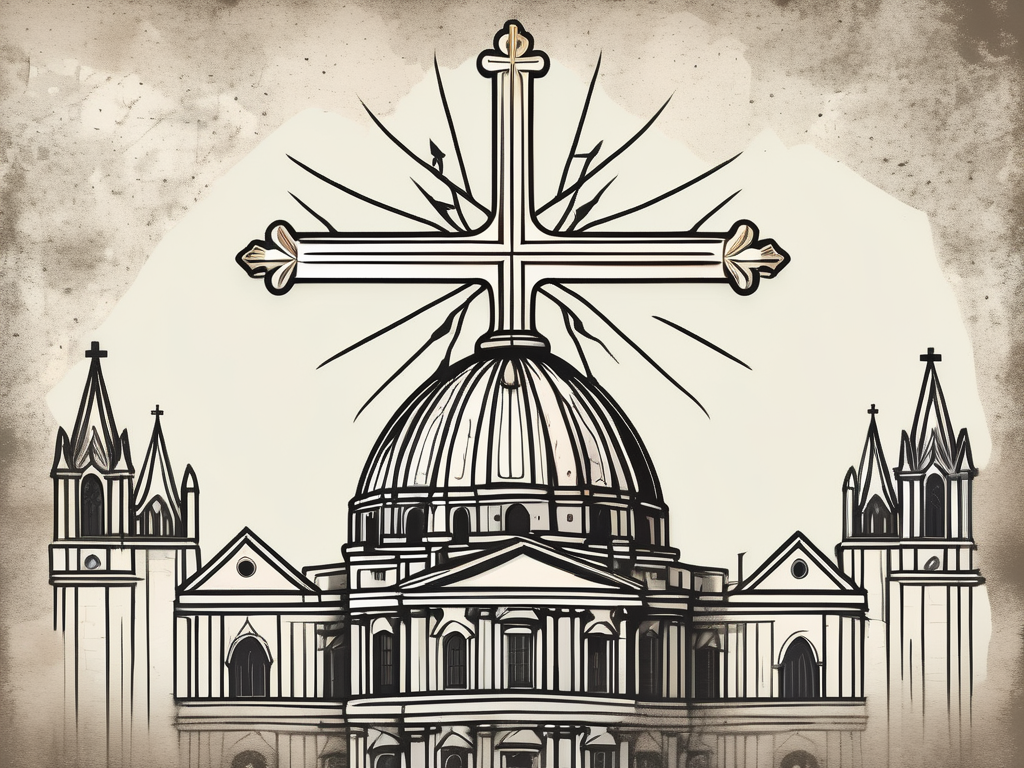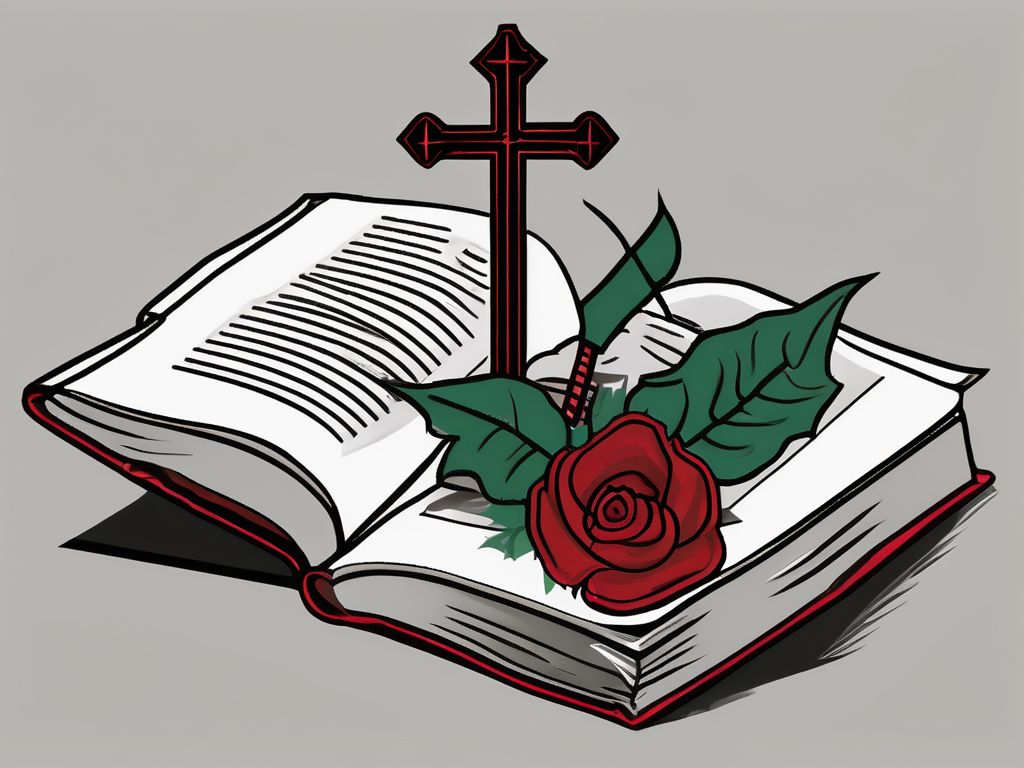The story of Saint Nicholas of Myra is one filled with extraordinary events and remarkable acts of generosity. Born into a loving family, Nicholas’s early life laid the foundation for his future as a revered saint. Through his journey to priesthood and his tenure as bishop of Myra, he encountered numerous challenges and triumphs, leaving an indelible mark on the Christian faith. Let us delve into the life and legacy of this revered figure.
Early Life of Saint Nicholas
Saint Nicholas of Myra’s life began with humble origins, much like many other saints. Born into a devout Christian family in the 3rd century AD, his parents instilled in him a strong sense of faith and compassion. Nicholas’s upbringing would later shape his unwavering commitment to helping those in need.
Birth and Family Background
Nicholas was born in the coastal city of Patara, located in modern-day Turkey. His parents, Theophanes and Nonna, were devout Christians who raised him in a household filled with love and piety. Nicholas’s birth coincided with the beginning of an extraordinary journey that would make him one of the most beloved figures in Christian history.
The city of Patara, where Nicholas was born, was a bustling hub of trade and commerce. It was a melting pot of different cultures, religions, and ideas. Growing up in such a diverse environment, Nicholas was exposed to a wide range of perspectives and beliefs, which would later contribute to his open-mindedness and acceptance of others.
As a child, Nicholas often accompanied his parents to the local church, where he would witness the power of faith in action. The community of believers inspired him with their acts of kindness and generosity towards one another. These early experiences left an indelible mark on Nicholas’s heart, igniting a desire within him to make a positive difference in the lives of those around him.
Education and Religious Influences
Under the guidance of his parents, Nicholas received a comprehensive education that encompassed both theological studies and the pursuit of knowledge. His thirst for learning led him to immerse himself in the teachings of Christianity, as well as the writings of early Church fathers.
Nicholas’s education extended beyond the walls of his home. He sought out renowned scholars and theologians of his time, engaging in spirited debates and discussions about matters of faith. These intellectual exchanges broadened his understanding of Christianity and deepened his commitment to living a life of service.
During his formative years, Nicholas encountered several influential figures who further shaped his religious views. Some accounts mention the pious Bishop of Myra, who recognized Nicholas’s potential and provided him with spiritual guidance. These encounters deepened Nicholas’s commitment to his faith and set him on the path towards priesthood.
As Nicholas delved deeper into his studies, he became captivated by the stories of the early Christian martyrs. Their unwavering devotion to their beliefs, even in the face of persecution, inspired him to emulate their courage and selflessness. Nicholas saw in their examples a call to action, a call to use his own gifts and privileges to alleviate the suffering of others.
It was during this time that Nicholas began to develop a reputation for his acts of charity. He would secretly deliver gifts to the poor and needy, often under the cover of darkness. His generosity became legendary, and stories of his kindness spread far and wide.
As Nicholas’s fame grew, so did his commitment to serving others. He dedicated himself to advocating for the rights of the oppressed and championing the cause of justice. His unwavering faith and tireless efforts earned him the adoration and respect of people from all walks of life.
Saint Nicholas’s Journey to Priesthood
Driven by his unwavering devotion to God, Nicholas embarked on a journey that would lead him to priesthood. His ordination and early ministry marked the beginning of a life dedicated to serving others and spreading the message of love and compassion.
As Nicholas delved into his theological studies, he immersed himself in the rich history and teachings of the church. His thirst for knowledge and understanding was insatiable, and he spent countless hours poring over ancient texts and engaging in theological debates with his peers. Through his studies, Nicholas gained a deep appreciation for the complexities of faith and the profound impact it could have on people’s lives.
Ordination and Early Ministry
Following years of theological studies, Nicholas was ordained as a priest. The day of his ordination was a momentous occasion, filled with joy and anticipation. Surrounded by his loved ones and fellow clergy, Nicholas felt a profound sense of purpose and responsibility settle upon his shoulders.
His fervent commitment to his calling quickly caught the attention of the community. Known for his heartfelt sermons and compassionate nature, Nicholas became a beacon of hope for those seeking spiritual guidance in troubled times. People from all walks of life flocked to hear him speak, drawn by the wisdom and warmth that radiated from his words.
During his early ministry, Nicholas dedicated himself to serving the poor and marginalized. He tirelessly visited the sick, providing comfort and solace to those in need. His acts of kindness were not limited to words alone; Nicholas often went above and beyond, offering material assistance to those struggling to make ends meet.
Challenges and Triumphs
Nicholas’s ministry was not without its challenges. He lived during a time when Christians faced persecution for their beliefs, yet he fearlessly continued to serve his congregation despite the risks. Nicholas’s unwavering faith and unfaltering dedication to his flock inspired many and earned him immense respect among both the faithful and his fellow clergy.
One account of his bravery tells of Nicholas facing Emperor Diocletian, who sought to suppress Christianity. In the face of the emperor’s wrath, Nicholas stood firm in his faith, refusing to renounce his beliefs. His unwavering courage resulted in his imprisonment, a testament to the lengths he was willing to go to defend his faith.
During his time in prison, Nicholas’s faith only grew stronger. He found solace in prayer and used his confinement as an opportunity for introspection and spiritual growth. Even in the darkest of times, Nicholas remained a source of hope and inspiration for his fellow prisoners, offering words of encouragement and sharing stories of God’s love and mercy.
After his release from prison, Nicholas continued his ministry with renewed vigor. His experiences had deepened his understanding of the human condition and strengthened his resolve to bring comfort and joy to those in need. Nicholas’s reputation as a compassionate and selfless servant of God spread far and wide, drawing people from far-flung places to seek his guidance and blessings.
Throughout his life, Nicholas remained steadfast in his commitment to spreading the message of love and compassion. His acts of kindness and unwavering faith continue to inspire countless individuals to this day. The journey that began with his ordination as a priest would ultimately lead Nicholas to become a beloved figure in Christian tradition, forever known as Saint Nicholas, the patron saint of children, sailors, and countless others in need.
Miracles Attributed to Saint Nicholas
Throughout his life, Saint Nicholas became renowned for the numerous miracles he performed. These extraordinary acts solidified his reputation as a saint and established him as a powerful intercessor for believers.
The Three Daughters
One of the most famous miracles attributed to Nicholas involves a poor man whose three daughters were destined for a life of destitution. Unable to provide them with dowries, which were customary to secure suitable marriages, the man was despondent. Hearing of their plight, Nicholas decided to intervene.
Under the cover of night, Nicholas secretly dropped bags of gold through the chimney of the man’s home. The bags landed in stockings hung by the fire to dry, providing dowries for all three daughters. This act of kindness and selflessness earned Nicholas a place in the hearts of many and became the basis for the modern tradition of hanging stockings at Christmas.
Resurrection of the Three Boys
Another remarkable event attributed to Saint Nicholas involves the resurrection of three young boys. As the story goes, during a journey, Nicholas came upon an inn where the wicked innkeeper had killed three boys and planned to serve their bodies as meat.
Touched by the tragic fate of the innocent boys, Nicholas fervently prayed to God for their restoration. Miraculously, the boys were brought back to life, and their grieving families were reunited with them. This act of divine intervention solidified Nicholas’s reputation as a miracle worker and further cemented his place as a revered figure in the Christian faith.
Saint Nicholas as Bishop of Myra
Nicholas’s unwavering dedication and his reputation for performing miracles eventually led to his appointment as the Bishop of Myra. As bishop, he demonstrated exceptional leadership qualities and made a lasting impact on both his flock and the wider Christian community.
Leadership and Influence
As the bishop, Nicholas transformed Myra into a beacon of faith and hope. He tirelessly advocated for the poor and oppressed, using his position of influence to effect societal change. Nicholas’s compassion extended beyond mere words, as he actively worked to improve the lives of those in need.
His influence over his congregation also extended to the religious sphere, where he played a pivotal role in the development of early Christian doctrine. Nicholas was present at the crucial Council of Nicaea in 325 AD, where he played a key role in shaping orthodox Christian beliefs.
Persecution and Imprisonment
Despite his significant contributions and unwavering faith, Nicholas faced persecution during the later years of his life. Emperor Diocletian, who despised Christians, sought to silence Nicholas’s influential voice by imprisoning him.
Nicholas’s imprisonment, however, did not deter his spirit. Even while confined, he continued to inspire and offer solace to his fellow prisoners, extending his love and compassion to all those he encountered. His resilience in the face of adversity further solidified his status as a beloved figure among the faithful.
Death and Canonization of Saint Nicholas
In his final years, Saint Nicholas continued to spread the message of love and compassion until his passing. His unwavering commitment to serving others and his remarkable life earned him a place among the saints of the Christian faith.
Final Years and Passing
After enduring years of persecution and imprisonment, Nicholas found solace in his faith until his death. He passed away on December 6, around the year 343 AD, leaving behind a legacy that would continue to inspire generations to come.
Process of Canonization
Following his death, Nicholas’s reputation for miracles and the profound impact he had on the Christian community led to his canonization as a saint. Over time, his status as a beloved figure spread far beyond his native region, with countless churches and shrines dedicated to him throughout the world.
The legacy of Saint Nicholas of Myra lives on to this day, as he continues to be revered for his generosity, compassion, and miracles. His story serves as a reminder of the profound impact one individual can have on the lives of others and the enduring power of faith and love.












